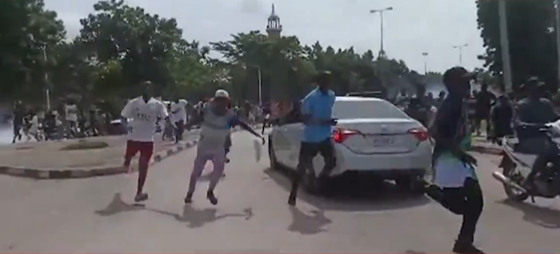Nigerian youth have taken to the streets in a series of coordinated protests that began on August 1, 2024, aimed at demanding comprehensive reforms from President Bola Ahmed Tinubu’s administration.
The 10-day demonstrations, driven by a growing frustration with government policies, are reminiscent of recent anti-government movements in Kenya.
Footage circulating on social media reveals protesters clashing with security forces, engaging in running battles marked by the use of teargas and disruptions to traffic, mirroring the intense scenes witnessed during Kenya’s Gen Z protests last month.
The protests were catalyzed by a social media campaign launched on July 6, where activists outlined their grievances and plans for mass action.
Using the hashtag #ENDBGIN, the demonstrators have listed twelve key demands, including the cessation of perceived anti-people policies, reductions in taxation, and reforms in electoral processes.
Among their specific demands, the protesters are calling for a rollback on import duty rates, a reduction in the salaries and allowances of lawmakers, and the creation of an emergency fund for small and medium-sized enterprises (SMEs).
They also seek reforms in the judiciary, the Economic and Financial Crimes Commission (EFCC), and the Independent National Electoral Commission (INEC), urging for greater transparency and independence in these institutions.
The protest strategy draws inspiration from Kenya’s recent anti-Finance Bill demonstrations, which saw Gen Z activists overcoming police barricades and vandalizing Parliament buildings before President William Ruto withdrew the controversial bill and undertook a cabinet reshuffle.
In Nigeria, the protesters are advised to carry placards, white cloths or ribbons, and the national flag.
They are instructed to assemble at local government assemblies, House of Representatives residences, governors’ offices, and the National Assembly, with plans to disrupt major transportation routes in key cities such as Lagos, Kano, and Abuja.


